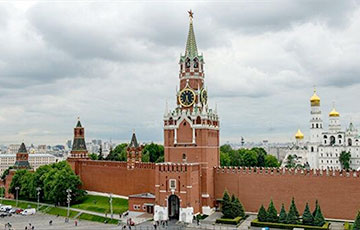ISW: Russia Is Afraid Of Pressure From The U.S. And Saudi Arabia
4- 4.08.2024, 9:07
- 20,566

The Kremlin's plan was exposed.
The Kremlin planned to transfer unspecified missiles and other military equipment to the Houthis in Yemen, but did not do so under diplomatic pressure. However, Russia's exposed plan underscores its growing military partnership with Iran and suggests it is likely seeking to use Tehran-backed militants to indirectly confront the West.
Russian dictator Putin's willingness to consider supporting the Houthis when they attack Israel and international shipping is part of Russian-Iranian military cooperation. As well as the growing dependence of the aggressor country on Iran in terms of obtaining weapons to wage war against Ukraine, according to the Institute for the Study of War (ISW).
According to CNN, U.S. officials and other sources familiar with the matter said Russia was preparing to hand over unspecified missiles and other weapons to the Yemeni Houthis in late July 2024. However, it abandoned this plan after diplomatic steps by the United States and Saudi Arabia. At the same time, sources are not sure whether Saudi Arabia's “protest” was the determining factor in stopping the planned arms transfer.
It is noted that at least three Russian military officials went to Yemen at the end of July 2024 to advise the Houthis and possibly help them in live-fire exercises, which they later canceled.
U.S. officials reportedly pointed out that Russia viewed arming and advising the Houthis as retaliation for lifting some U.S. restrictions on Ukraine's use of Western weapons for strikes on Russian territory.
Putin threatened in early July to allow unspecified actors to launch long-range strikes against the West as a “symmetrical response” to the removal of some of these restrictions.
"Russia's reported plans to support the Houthis in order to indirectly confront the West and the threat of further escalation are consistent with several information and hybrid operations of Russia, which are aimed at encouraging the West to refrain from supporting Ukraine due to fears of confrontation with the Russian Federation," the ISW believes.
It stressed that Russia's deepening partnership with Iran is likely to encourage it to consider supporting other Iranian proxies and using these groups in yet another indirect attempt to threaten the West with escalation. At the same time, analysts note that such a strategy of the Kremlin will disrupt its attempts to present Russian foreign policy in the Middle East as "balanced" and may further complicate Russia's relations with countries concerned about Russian-Iranian cooperation.











